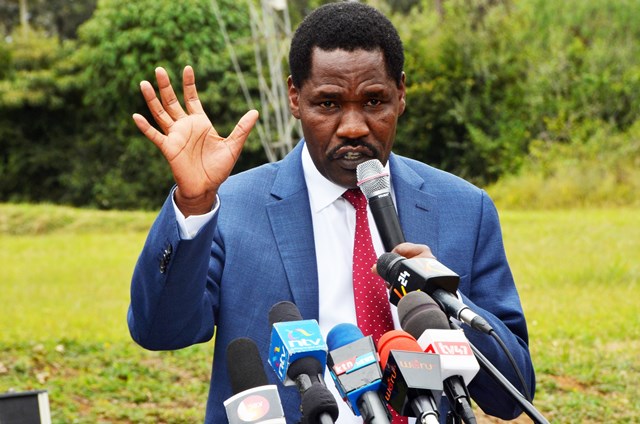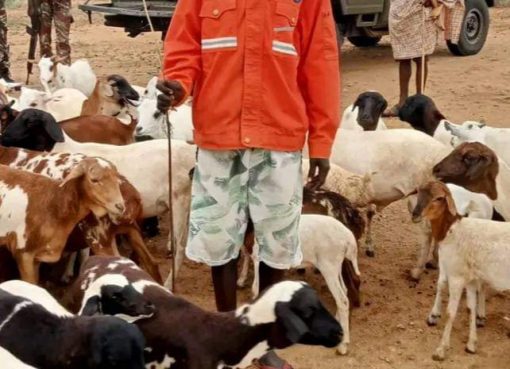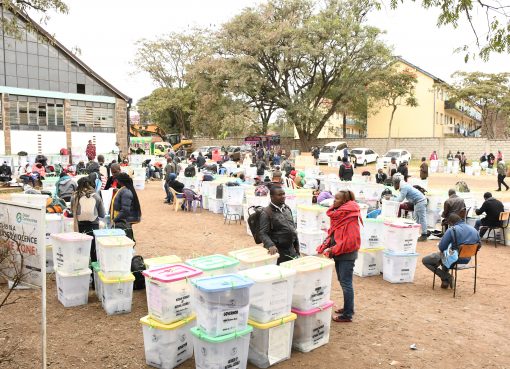The government has extended coffee trading licenses for another one year.
This comes barely two days after the Nairobi coffee exchange failed to hoard coffee trading as the row between marketing agents and Capital Markets Authrotity (CMA) deepened.
The extension of the licenses comes after the 2019/2020 coffee year expired on June 30, 2020 compelling the Coffee marketing agents to reapply afresh for the document amid claims the exercise lacked crucial structures.

Agriculture and fisheries Cabinet Secretary Peter Munya confirmed that plans were underway to review the CMA Coffee Exchange regulations 2020 within the next three weeks but assured that the process will be subjected to public participation.
The CS was speaking at the new Kenya Planters Cooperative Union (KPCU in Dandora when he hinted on ongoing governments reforms in the sector including the Coffee cherry advance revolving fund.
He however regretted that coffee auction did not take-off this week at the Nairobi Coffee Exchange (NCE) as proper transition logistics were not put in place.
Samples of 12,000 bags of clean coffee that had been received from marketing agents was not offered for sale on July 7, 2020 a situation that has elicited sharp reactions from value chain players.
He explained that the auction failed to take place since the current trading rules were not properly authored leading to the current confusion and outcry from farmers and other stakeholders.
The CS confirmed that the coffee reforms in place will see farmers get details on how much their coffee fetched on the market, reduce wastage occasioned by processing and milling and also improving cooperative societies and access part of the Ksh 3 billion government grant from the Coffee Cherry Advance Revolving fund.
The new KPCU started operations in the late coffee season of 2019/202 and between January and May this year they have received 9,341 bags of parchment coffee, an equivalent of 434 tonnes.
‘Out of the milled coffee, new KPCU has also sold over 1000 kilos locally receiving a payment of about Ksh 18 million “, the CS said adding that to maintain transparency , farmers have been informed of the offers received to give their consent to sell their coffee.
The extension of the licenses by CS Munya comes barely a few hours after a farmers lobby –Kenya Coffee Producers Association (KCPA) called for suspension of the rules until all the structures and systems had been put in place including amending the Cross act, 2013.

(KCPA) Chairman Peter Gikonyo who was speaking to the media outside the KPCU head office said that the new coffee rules that were gazette in April this year were unconstitutional with no clear direction on how some systems to process coffee such as the Direct Settlement System (DSS) will be able to protect farmers proceeds in the event that the marketing agent does not remit the growers proceeds.
“We want to asked the government not only to suspend the coffee exchange regulations until all structures and systems have been put in place but also to consult farmers to ensure regulations are aligned to the needs of the producers.
On the issue of the delay of auction of their coffee that was expected to take place on Tuesday this week but did not take off, Gikonyo said this means increased economic loss to farmers especially for those who had borrowed loans .
“The Coffee picking and processing coincided with the outbreak of CoronaVirus pandemic, already seeing the farmers incurring higher costs, now with the payments , it means that farmers cannot get money when they need it and hence getting economically crippled especially during this hard economic time of Coronavirus pandemic” , he said.
Gikonyo further noted that bearing in mind that 80 percent of Kenyan coffee is expected to the International markets, if not supplied with coffee when needed, many buyers of Kenyan coffee might turn to alternative sources.
KCPA has asked the government not only to concentrate on marketing rules of coffee but should also be more concerned on the rules to help increase coffee production for the growth and sustainability of the Coffee industry.
By Wangari Ndirangu




